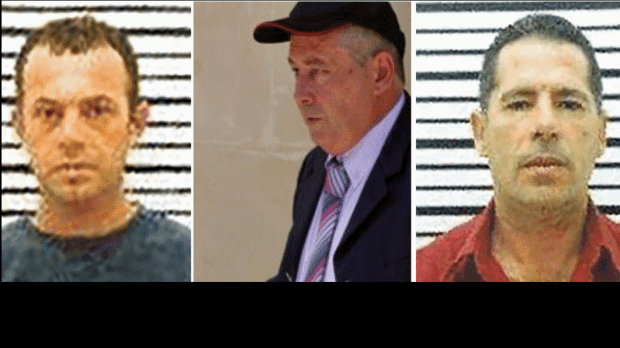
The Sunday Times’s story this morning is very important and deserves analysis.
We must think about why we’re reading the story now. The assassination of Daphne Caruana Galizia happened two years ago. A year ago Michael Farrugia gave, then retracted, the information that the police had identified suspects who were behind the order to the three charged with the murder.
The first statement from Michael Farrugia could not have been complete rubbish. Nor did his retraction happen because he later found his statement was complete rubbish.
The police have suspected for some time the identity of at least one person who has never been arrested or questioned in connection with this case. The identity of that person emerges from his day to day connections, which point to the “businessman” the Sunday Times speaks about today.
It is the same person that the Sunday Times said today wrote his will within hours of the arrest of the three who could identify him. He must have felt, and still feels, not to put too fine a point on it, in mortal danger.
As has been obvious for some time the only three people who can be sure who is behind this murder are the three assassins themselves. They at least know the intermediary between them and the real mandator. I have repeatedly underlined in the last two years my bewilderment at a statement quoted to me by a journalist to whom Kurt Farrugia had spoken. Kurt Farrugia, then government spokesman, had ruled out any form of negotiation with the three alleged assassins for an incentive to turn state’s evidence. I published this quote several times and it was never denied.
We read in today’s The Sunday Times report that the lawyer for one of the three assassins, Arthur Azzopardi who represents Vincent Muscat il-Koħħu has called as witnesses in his client’s defence Joseph Muscat, Keith Schembri, Peter Grech – the Attorney General and Lawrence Cutajar – the Police Commissioner.
It is possible those witnesses have been summoned to testify as to what they know about the assassination itself, which facts may exculpate Vincent Muscat.
But it bears thinking about that they may also be important witnesses because Arthur Azzopardi believes they know that his client, Vincent Muscat, has cooperated with the police for several months since his arrest.
This website can reveal that Vincent Muscat has pointed the police to an intermediary that was part of the commissioning of the murder of Daphne Caruana Galizia. He has done so in secret interviews he has given to the police.
The interviews were secret because Vincent Muscat fears that his alleged accomplices – Alfred and George Degiorgio – may find out that he is cooperating with the police and that he might testify against them in their trial, adding the weight of an eye witness account to the forensic evidence against them.
A few months ago the lawyer for Alfred and George Degiorgio made a surprise request in court asking for permission for his clients to meet and speak with MEPs Ana Gomes and David Casa. The MEPs refused to have the meeting and the court’s permission to the Degiorgios was refused.
This strange episode can have many underlying meanings, but it certainly suggests that the Degiorgio brothers may have got wind of the fact that their alleged accomplice was now cooperating with the police.
This website is informed that Vincent Muscat has lost considerable weight in the last several months. He is refusing to eat prison food and is making it a point of sharing the food his family brings him with his inmates. It is clear, at least to my mind, that Vincent Muscat is fearing for his life.
In spite of the evidence given to the police by Vincent Muscat, the accused has not been granted any form of plea bargain or conditional immunity in exchange for the information he has given.
His lawyer Arthur Azzopardi might, then, want to summon Joseph Muscat, Keith Schembri, Peter Grech and Lawrence Cutajar to confirm under oath that his client has cooperated or attempted to cooperate with the authorities since his arrest. He could then argue that this should be taken into account when deciding on a penalty should he be convicted for the crime.
This website is also informed that the story is finally able to emerge to the public’s attention because of impatience by investigators who have for months identified the next steps in their investigation but who for a long time have been held back by political interference.
Kurt Farrugia’s statement to a journalist all those months ago appears to confirm there has been a political unwillingness to get to the bottom of this murder. This is further corroborated by the delay and tactical games played by the government to postpone the proper constitution of an independent inquiry into the killing of Daphne Caruana Galizia.
And it is now also corroborated by the apparent unwillingness for several months of the Attorney General and the Chief of Police to consider some form of deal with a possible witness both to testify against the alleged assassins and to provide information on the masterminds.
There must also be concern in connection with the identified (to the Police) intermediary whom The Sunday Times did not identify although it is almost certain the newspaper knows who it is. It is very concerning, to say the least, that a material witness who may be the key to the resolution of this case and justice being served on the masterminds of this crime is left without any form of witness protection.
The capability and willingness of the masterminds of this crime to use violence and murder to reach their ends is proven at least by the killing of Daphne Caruana Galizia. It is fairly straightforward to presume the same people would be able and willing to use the same methods to ensure they are not punished for this and for their earlier crimes.